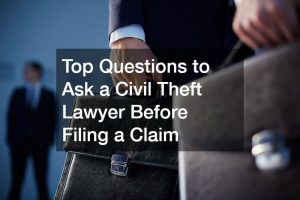- Seek medical attention and document the accident scene, including contact information from witnesses and other parties.
- Gather evidence, such as photos, videos, and a police report, if applicable.
- Notify your insurance company and contact an attorney for legal advice.
- Follow through with treatment prescribed by medical professionals and keep detailed records.
- Take steps to protect your rights and ensure you receive fair compensation for your damages.
Experiencing an accident can be traumatic and overwhelming, and taking the necessary steps to protect your rights and ensure you receive fair compensation is crucial. Here are five important actions to take after an accident.
1. Ensure Your Safety and Seek Medical Attention
Your health and safety should be your top priority after an accident. Move to a safe location to avoid additional hazards, and seek medical attention even if you don’t feel injured. Getting a thorough medical evaluation is essential to determine if you have any hidden injuries that may not be immediately apparent.
After seeking medical attention, document the accident scene by taking photos of any damages, injuries, and hazards present. Exchange contact information with other involved parties, and get the contact information of any witnesses. Collecting this information will be useful for filing insurance claims or pursuing legal action.

2. Gather Information and Document the Scene
Collect as much information as possible about the accident. Take photos of the scene, including any damage to vehicles or property and visible injuries. Exchange contact and insurance information with the other parties involved, and collect contact information from witnesses. This information will be valuable in filing an insurance claim or pursuing legal action.
Here’s everything you need to gather on the documentation:
Collect Contact Information
It’s important to gather contact information from all drivers and witnesses who may have seen the accident. Note their names, addresses, phone numbers, email addresses and insurance information. Doing this at the scene will help ensure you get accurate contact details before anyone can leave. Additionally, write down license plate numbers, so you don’t forget which car belongs to whom.
Document Injuries
Document it as best as possible if anyone was injured in the accident. Take photographs or videos of any visible injuries and note what happened to each person involved in the crash. This information is essential for pursuing a personal injury case if needed. Even if the injuries don’t appear serious at the time, they can worsen later on.
Take Photographs of the Scene
Photographs and videos are great evidence to help reconstruct what happened during the accident. You can even use them as evidence if there is a dispute over who was at fault in court or with insurance companies. Capture images from multiple angles and distances so you have an accurate representation of the crash scene.
Get Details about Traffic Laws
If there was a traffic violation involved in the accident, document it. Write down traffic laws either party broke, such as running a red light or speeding. This information will be helpful when filing an insurance claim or taking legal action. Additionally, find out if the police were called to the scene and obtain a report from them. This will provide essential information about who was at fault for the accident.
3. Notify Your Insurance Company
Report the accident to your insurance company as soon as possible, even if you believe the accident was not your fault. Provide them with any information you have collected and cooperate with their investigation. Avoid admitting fault or apologizing for the accident, as this may be used against you in future legal proceedings.
It is important to understand the terms of your policy, including the types and amounts of coverage you have. This can help you determine what damages may be covered by insurance and how much compensation may be available. You should also contact an attorney with experience in dealing with car accidents as soon as possible, even if you are not at fault.

4. Contact an Attorney
If you were seriously injured or believed you may be entitled to compensation for your damages, contacting an attorney may be in your best interest. An experienced injury lawyer can help you navigate the legal process, negotiate with insurance companies, and advocate for your rights. They can also advise you on the strength of your case and the potential value of your claim.
5. Follow Through with Treatment and Keep Records
It’s important to follow through with any medical treatment your healthcare provider prescribes, even if your injuries are minor. Keep records of all medical appointments, treatments, expenses, and any time off work due to the accident. These records can help support your claim and demonstrate the extent of your damages.
In Summary
Taking these steps after an accident can help protect your rights and ensure that you receive fair compensation. All essential actions are seeking medical attention, documenting the accident scene, notifying your insurance company, contacting an attorney, and keeping records of your treatment and expenses. Act quickly and advocate for yourself after an accident to protect your rights and receive the compensation you deserve.






